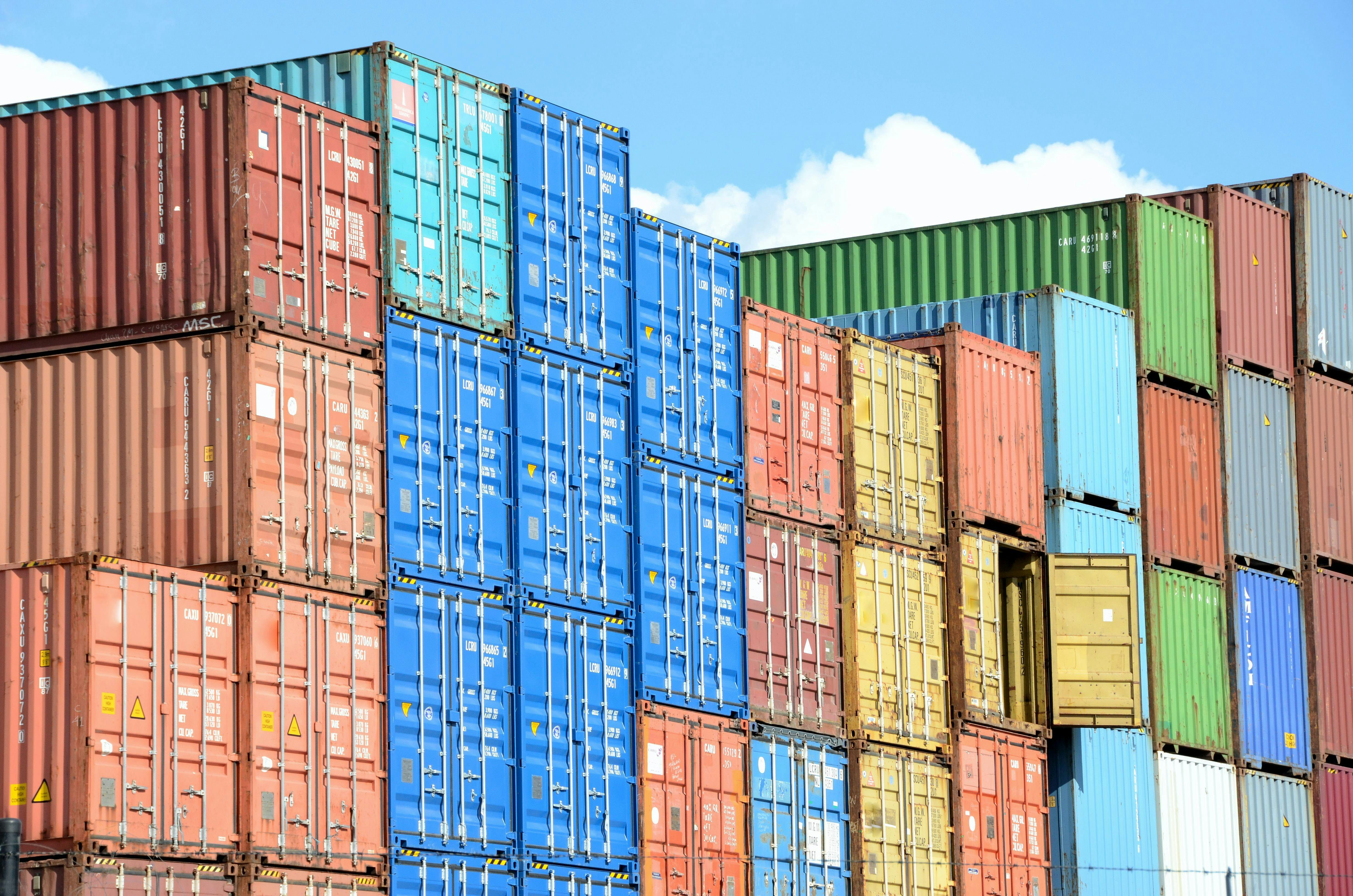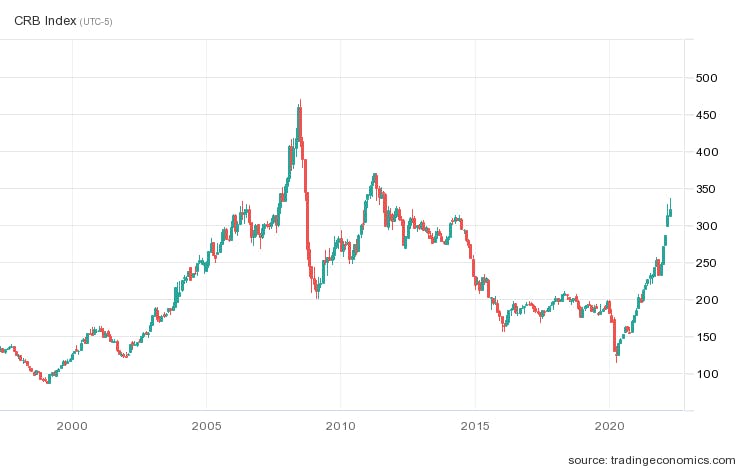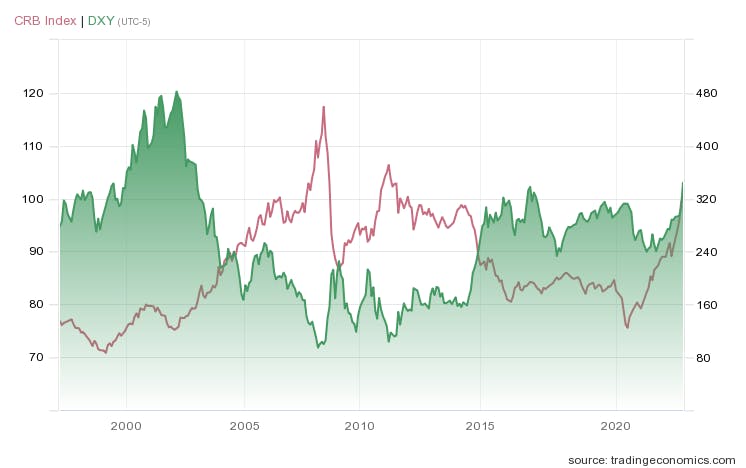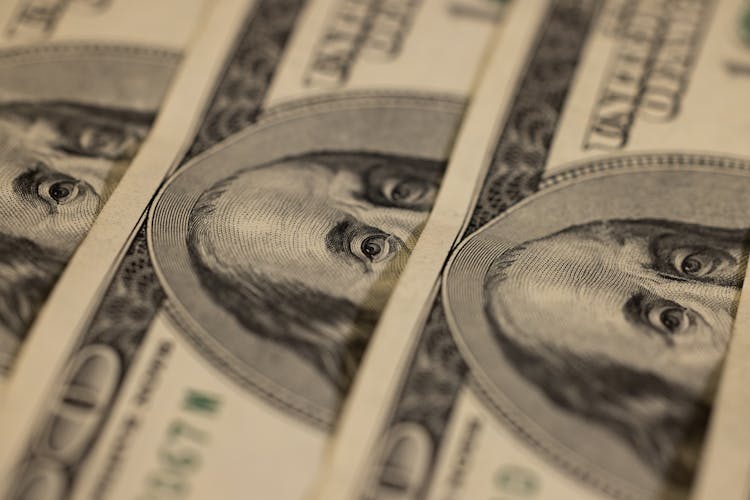
Commodity Trading: Is This a Commodity Supercycle?
Apr 27, 2022
By David Accomazzo and Clemens Kownatzki
Commodity trading can offer an opportunity unique from stock trading that provides price action coming from similar news items and data releases. Crude oil and gold futures can equip the everyday trader with new speculative tools, but commodity markets can be so volatile that appropriate sizing is important. For more on commodities, check out How to Trade Crude Oil Futures.
When it comes to trading opportunities, few assets offer more possibilities than commodities. Basic materials are highly cyclical and move in forceful, long-lasting trends. There are fundamental reasons for such reflexive waves that have to do with the interchangeability of commodities inviting cyclicality; more simply, high prices incentivize higher levels of production, while low prices disincentivize producers. Furthermore, events affecting supply like disrupted production, reoriented crop cycles, and new facility construction cannot be remedied in short periods of time, hence elongated trends.
Commodity Research Bureau (CRB) Index and Market Cycles
Commodities are believed to move in supercycles or pricing waves that can last between 10 and 20 years. It is generally recognized that in the last 100 years markets may have experienced essentially four such supercycles. Driven by China’s insatiable demand for raw materials, the last up-cycle started in the late 90’s and peaked in 2008 just before the start of the Great Financial Crisis. Subsequently, we experienced a down cycle which bottomed in May 2020, during the notorious futures crude oil settlement which recorded a historical, and hard to believe, negative price (holders of futures contracts into the delivery window had to actually pay counterparties to take oil off their hands).
The CRB Index is a good proxy for general commodity prices given its broad basket of 19 commodities including popular markets like crude oil, natural gas, copper, and several agricultural commodities. Traders can identify the major trends in the historical chart, and recent action suggests that commodities are well into the up-cycle that started almost two years ago.

Are Commodity Prices Going Higher?
If the supercycle theory holds, traders could expect positive pricing pressure on most commodities for years to come. There are many fundamental reasons behind such a possible prolonged move. The end of the pandemic and the reopening of the world’s economies are accelerating demand for goods at precisely the wrong time from a supply-side perspective. COVID-related issues have put significant dents into global supply chains, and solutions are not easy to come by in the midst of a slow but noticeable deglobalization trend.
The recent conflict between Ukraine and Russia only exacerbates energy supply tightness, and, even more concerning, it impairs food supply dynamics as well. The price shock of the Russian invasion can also make deglobalization a more pressing matter for governments and international companies alike.
Financial deglobalization could also put pressure on the US dollar reducing its role as the global reserve currency. Commodities show an almost perfect negative correlation with the greenback as global trade has been so far settled almost entirely in dollars. As an example, the dollar Index and the CRB Index follow distinctly different trends as the historical chart below shows.

In terms of energy, it could also be expected that recent ESG pressures will continue. A transition from a fossil fuel society to a new one based on a complex and diverse energy platform could continue to put upward pressure on all basic materials. And finally, geopolitical tensions and other externalities will invariably impact supply-chains and therefore commodity prices. It could be a bumpy ride ahead despite the potentially broad-based up-trend in commodities. As a result, there are risks but also immense trading opportunities in the weeks and months ahead.
In the words of Frank Herbert, author of best-selling novel Dune: “He who controls the spice, controls the universe.” Are you ready to master the commodity universe?
Davide Accomazzo is the Chief Investment Officer at THALASSA CAPITAL and Finance Professor at Pepperdine Graziadio Business School.
Clemens Kownatzki is Associate Dean of Fulltime Programs and Finance Professor at Pepperdine Graziadio Business School.
Sign up for more articles like this with our free weekly market commentary.







